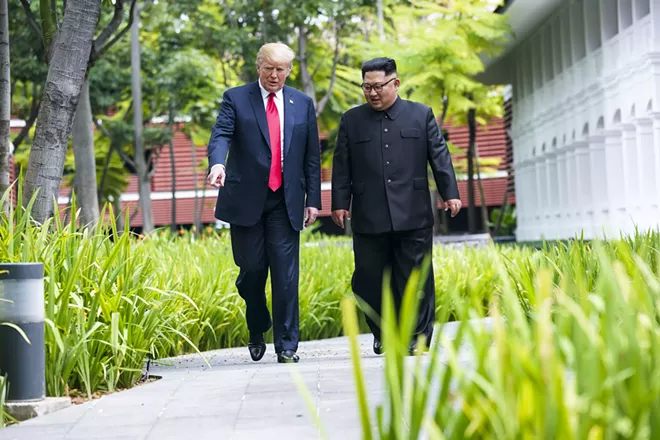
By MARK LANDLER
© 2018 New York Times News Service
SINGAPORE — President Donald Trump’s eager embrace of Kim Jong Un of North Korea this week, on the heels of an acrid falling-out with Prime Minister Justin Trudeau of Canada, raised an obvious, if confounding, question: Why would a U.S. president offend allies and cozy up to adversaries?
If there was an answer in Trump’s tumultuous week on the global stage, it may be that he disregards the traditional preoccupations of U.S. foreign policy — power and values — in favor of a more narrow worldview shaped by his experience as a businessman.
“The theme that comes up, over and over, is money,” said Jeffrey A. Bader, a diplomat who advised President Barack Obama on China.
Trump’s bitter clashes with Canada and Europe over trade, as well as his solicitous courtship of North Korea’s brutal dictator, all reflect this mercantile perspective. In his transactional approach to foreign policy, considerations of financial profit or cost — often measured in ways that economists deem simplistic — can outweigh virtually any other consideration.
“What that means is that Trump, like a lot of businessmen, doesn’t pay much attention to Canada, or Europe, or Japan,” Bader said. “Businessmen pay attention to the growth markets: Vietnam, Brazil, India, China.”
Or, as was on vivid display in Singapore this week, North Korea.
That does not mean Trump is necessarily interested in North Korea as a trade partner or an investment opportunity for the United States. But his view of the challenges posed by the Korean Peninsula are colored — and perhaps limited — by his background in business.
In Trump’s meetings with Kim — the first for a sitting president and a North Korean leader — he soft-pedaled traditional U.S. concerns like regional security and human rights. Instead, he celebrated North Korea’s economic potential and pitched Kim like a property developer proposing to build condominiums on a reclaimed Superfund site.
North Korea may consider its position between China and South Korea, with Japan across the water, as reason to be worried about military security. But Trump considers it a prime location amid booming economies. “Think of it from a real estate perspective,” he said.














